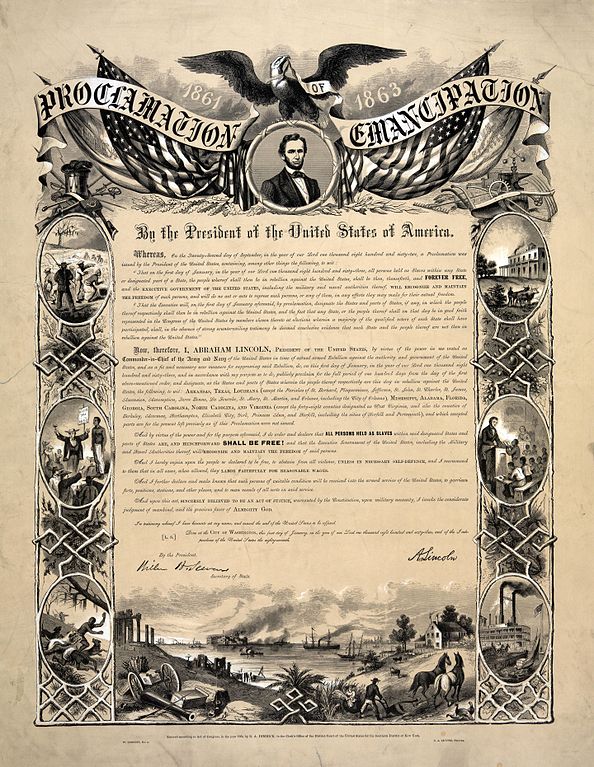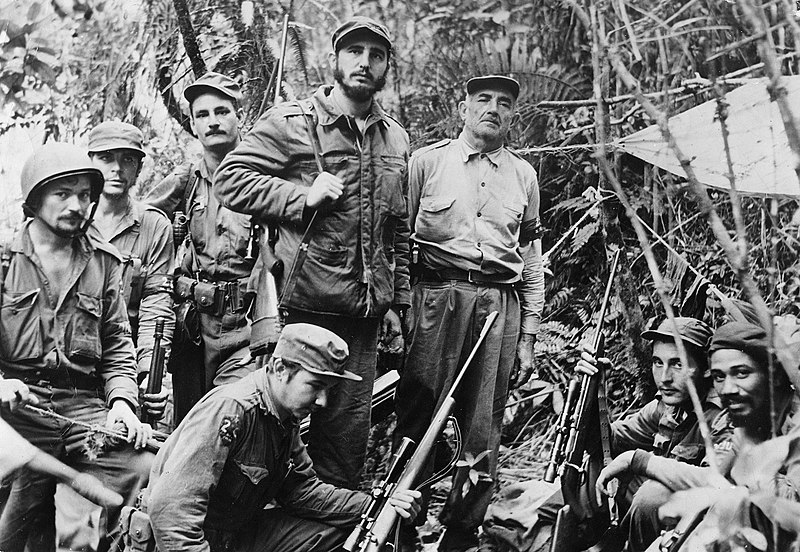As the first day of the year, January 1st has witnessed a plethora of transformative events throughout history, shaping the course of nations, economies, and societies.
In this article, we embark on a journey through time to explore significant events that have unfolded on January 1st, spanning centuries and continents.
From the adoption of new calendars to the establishment of international agreements and the dawn of space exploration, each event serves as a testament to the dynamism of human history and the enduring quest for progress.
Join us as we reflect on these pivotal moments and their lasting impact on the world we inhabit today.
January 1st Events in History
45 BC – The Julian calendar takes effect for the first time
This marked the implementation of the Julian calendar, proposed by Julius Caesar and developed by the Alexandrian astronomer Sosigenes.
It replaced the Roman calendar, which had become highly inaccurate due to its irregularity. The Julian calendar introduced a regular system of leap years to align the calendar with the solar year more accurately.
404 – The last known gladiatorial combat in the Roman Empire occurs
Gladiatorial combat was a popular form of entertainment in ancient Rome, involving armed combatants fighting one another or wild animals in public arenas.
Also Read: January 2nd Events in History
This event marked the end of an era of widespread gladiatorial games, as societal attitudes shifted and the practice gradually fell out of favor.

1502 – Portuguese explorers land at Guanabara Bay on the coast of South America and name it Rio de Janeiro (January River)
Portuguese explorers led by Gaspar de Lemos discovered Guanabara Bay on January 1st, 1502. They mistakenly believed the bay to be the mouth of a large river and named it “Rio de Janeiro,” meaning “January River” in Portuguese.
This name eventually extended to the surrounding area, and Rio de Janeiro became one of the most famous cities in Brazil and the world.
1600 – Scotland adopts the Gregorian calendar, skipping 11 days from December 31, 1599, to January 1, 1600
The Gregorian calendar, introduced by Pope Gregory XIII in 1582, was designed to correct the inaccuracies of the Julian calendar.
Scotland adopted the Gregorian calendar in 1600, which required skipping 11 days to align with the new system. This adjustment brought Scotland in line with other European countries that had already adopted the Gregorian calendar.
1700 – Russia adopts the Julian calendar
Russia adopted the Julian calendar on this date, aligning its calendar system with that of other Orthodox Christian countries. The Julian calendar, named after Julius Caesar, was introduced by Julius Caesar in 46 BC.
However, it had become outdated by the 17th century due to its slight inaccuracy in measuring the solar year compared to the Gregorian calendar. Russia continued to use the Julian calendar until 1918 when it transitioned to the Gregorian calendar under the Soviet government.
1752 – The British Empire adopts the Gregorian calendar, and this day is followed by January 14th
The adoption of the Gregorian calendar by the British Empire was part of a calendar reform to correct the discrepancies of the Julian calendar. The British Calendar Act of 1751 mandated the change, with the year 1752 transitioning from the Julian to the Gregorian calendar.
This resulted in the omission of 11 days from September, so September 2nd was followed by September 14th. This adjustment brought the British Empire in line with other European nations that had already adopted the Gregorian calendar.
1801 – The Act of Union between Great Britain and Ireland comes into effect, creating the United Kingdom of Great Britain and Ireland
The Act of Union of 1800, which came into effect on January 1st, 1801, merged the Kingdom of Great Britain and the Kingdom of Ireland into a single political entity called the United Kingdom of Great Britain and Ireland.
This union was a significant political and constitutional change, intended to strengthen British control over Ireland and promote economic and political stability within the newly formed United Kingdom.
1863 – The Emancipation Proclamation is issued by President Abraham Lincoln, declaring that all slaves in Confederate-held territory are to be set free
President Abraham Lincoln issued the Emancipation Proclamation during the American Civil War, on January 1st, 1863. This historic executive order declared that all enslaved people in Confederate-held territory were to be set free.
While it did not immediately free all slaves in the United States, it fundamentally transformed the purpose of the Civil War by making the abolition of slavery a central war aim and eventually paved the way for the passage of the Thirteenth Amendment, which formally abolished slavery throughout the United States.

1892 – Ellis Island in New York Harbor opens as a US immigration depot
Ellis Island, located in New York Harbor, opened as a federal immigration station on January 1st, 1892. It served as the primary entry point for immigrants to the United States from Europe until its closure in 1954.
Millions of immigrants, predominantly from Europe, passed through Ellis Island, undergoing medical and legal inspections before being admitted to the United States. Ellis Island remains an iconic symbol of American immigration and the immigrant experience.
1912 – The Republic of China is established
On January 1st, 1912, the Republic of China was established, marking the end of over two millennia of imperial rule. The establishment of the republic followed the Xinhai Revolution, which overthrew the Qing dynasty and established a republican form of government in China.
Sun Yat-sen was inaugurated as the provisional president of the Republic of China, ushering in a new era of political and social change in China.
1942 – The Declaration by United Nations is signed by 26 nations during World War II, setting the groundwork for the United Nations
The Declaration by United Nations was signed on January 1st, 1942, by representatives of 26 Allied nations during World War II.
This declaration marked the first formal act of alliance among the Allies, who pledged to uphold the principles of the Atlantic Charter and work together to defeat the Axis powers.
The declaration laid the groundwork for the establishment of the United Nations, which would be founded in 1945 after the conclusion of World War II.
1959 – Fidel Castro leads the Cuban Revolution and overthrows Fulgencio Batista, establishing a communist government in Cuba
Fidel Castro, along with Che Guevara and other revolutionaries, led the Cuban Revolution, culminating in the overthrow of the Cuban government led by Fulgencio Batista on January 1st, 1959.
The revolutionaries established a socialist government in Cuba, marking the beginning of communist rule under Castro’s leadership.
This event had significant geopolitical implications, leading to strained relations between Cuba and the United States and shaping the course of Cold War politics in the Western Hemisphere.

1962 – Western Samoa gains independence from New Zealand-administered UN trusteeship
On January 1st, 1962, Western Samoa (now known as Samoa) gained independence from New Zealand-administered trusteeship under the United Nations.
This marked the culmination of a process of decolonization and self-determination for the Samoan people, who had been under various colonial administrations since the 19th century. Independence brought about significant political and social changes in Samoa as it assumed control of its own governance and affairs.
1971 – Cigarette advertising is banned on American television
On January 1st, 1971, the United States implemented a ban on cigarette advertising on television and radio as part of efforts to address concerns about the public health impacts of smoking.
The ban was a significant milestone in tobacco control policy, as it aimed to reduce the influence of cigarette advertising on smoking behavior, particularly among young people.
The ban signaled a shift in public attitudes towards smoking and contributed to broader efforts to curb tobacco use and its associated health risks.
1983 – The Internet’s Domain Name System (DNS) is introduced
The Domain Name System (DNS), which translates domain names into IP addresses, was introduced on January 1st, 1983.
Developed by Paul Mockapetris, the DNS revolutionized the way internet addresses were organized and accessed, providing a hierarchical naming system that made it easier for users to navigate the rapidly expanding internet.
The DNS remains a fundamental component of the internet infrastructure, enabling the functioning of websites, email services, and other internet-based applications.
1984 – Brunei becomes independent from the United Kingdom
On January 1st, 1984, Brunei gained full independence from the United Kingdom after being a British protectorate since the late 19th century.
Brunei, located on the island of Borneo in Southeast Asia, became a sovereign nation with its own government and ruler, Sultan Hassanal Bolkiah.
Independence marked a significant milestone in Brunei’s history, allowing it to chart its own course in governance, economics, and international relations.
1993 – Czechoslovakia peacefully splits into the Czech Republic and Slovakia
On January 1st, 1993, Czechoslovakia underwent the “Velvet Divorce,” a peaceful dissolution into two separate nations: the Czech Republic and Slovakia. This event followed the end of communist rule in Czechoslovakia and was prompted by political and economic differences between the Czechs and Slovaks.
The split was negotiated amicably, with both nations agreeing to peacefully pursue their own paths to independence and sovereignty. The Velvet Divorce stands as a model for peaceful secession and transition between nations.
1994 – The North American Free Trade Agreement (NAFTA) comes into effect
NAFTA, a trilateral trade agreement between the United States, Canada, and Mexico, came into effect on January 1st, 1994. The agreement aimed to promote economic integration and trade liberalization among the three North American countries by eliminating tariffs and other trade barriers.
NAFTA had significant impacts on the economies of the member countries, fostering increased trade and investment but also generating debate and controversy over its effects on jobs, wages, and environmental standards.

1995 – The World Trade Organization (WTO) is established
The World Trade Organization (WTO) officially came into existence on January 1st, 1995, replacing the General Agreement on Tariffs and Trade (GATT) as the global body overseeing international trade.
The WTO’s primary objectives include facilitating trade negotiations, enforcing trade agreements, and resolving disputes between member countries.
The establishment of the WTO marked a milestone in global economic governance, shaping the rules and regulations governing international trade in the modern era.
1999 – The Euro currency is introduced in 11 European Union member states
On January 1st, 1999, the Euro currency was introduced electronically in 11 European Union (EU) member states as part of the Eurozone. The Euro became the official currency for these countries, replacing their national currencies.
While physical Euro banknotes and coins were not introduced until 2002, the adoption of the Euro marked a significant step towards economic and monetary integration in Europe. The Eurozone has since expanded to include additional member states, solidifying the Euro’s role as a major global currency.
2002 – The Euro becomes the official currency of 12 European countries
On January 1st, 2002, the Euro banknotes and coins were introduced as the official currency in 12 European Union (EU) member states. This event marked the culmination of years of planning and preparation for the adoption of a single currency across much of Europe.
The Euro was intended to promote economic integration, facilitate trade and travel, and strengthen the European Union’s position in the global economy. The adoption of the Euro represented a significant milestone in the process of European integration.
2007 – Bulgaria and Romania join the European Union
On January 1st, 2007, Bulgaria and Romania officially became members of the European Union (EU), expanding the organization to include 27 member states. The accession of Bulgaria and Romania followed a period of political and economic reforms aimed at aligning with EU standards and criteria.
Membership in the EU provided Bulgaria and Romania with access to the European single market, funding for development projects, and opportunities for closer political and economic cooperation with other EU member states.
2014 – Latvia becomes the 18th member of the Eurozone
On January 1st, 2014, Latvia adopted the Euro as its official currency, becoming the 18th member of the Eurozone. Latvia’s adoption of the Euro followed years of economic reforms and preparation to meet the criteria for joining the single currency.
Joining the Eurozone was seen as a significant milestone for Latvia’s integration into the European Union and the broader European economic and monetary system. The adoption of the Euro aimed to promote stability, facilitate trade and investment, and strengthen Latvia’s ties with other Eurozone countries.
2020 – The World Health Organization (WHO) established the Incident Management Support Team (IMST)
On January 1st, 2020, the World Health Organization (WHO) established the Incident Management Support Team (IMST) in response to emerging public health concerns. The IMST serves as a crucial component of WHO’s rapid response framework, providing essential coordination and support during health emergencies and crises.
With its formation, the IMST played a pivotal role in facilitating the global response to emerging health threats, including the COVID-19 pandemic, by coordinating surveillance, risk assessment, and response efforts on an international scale.
